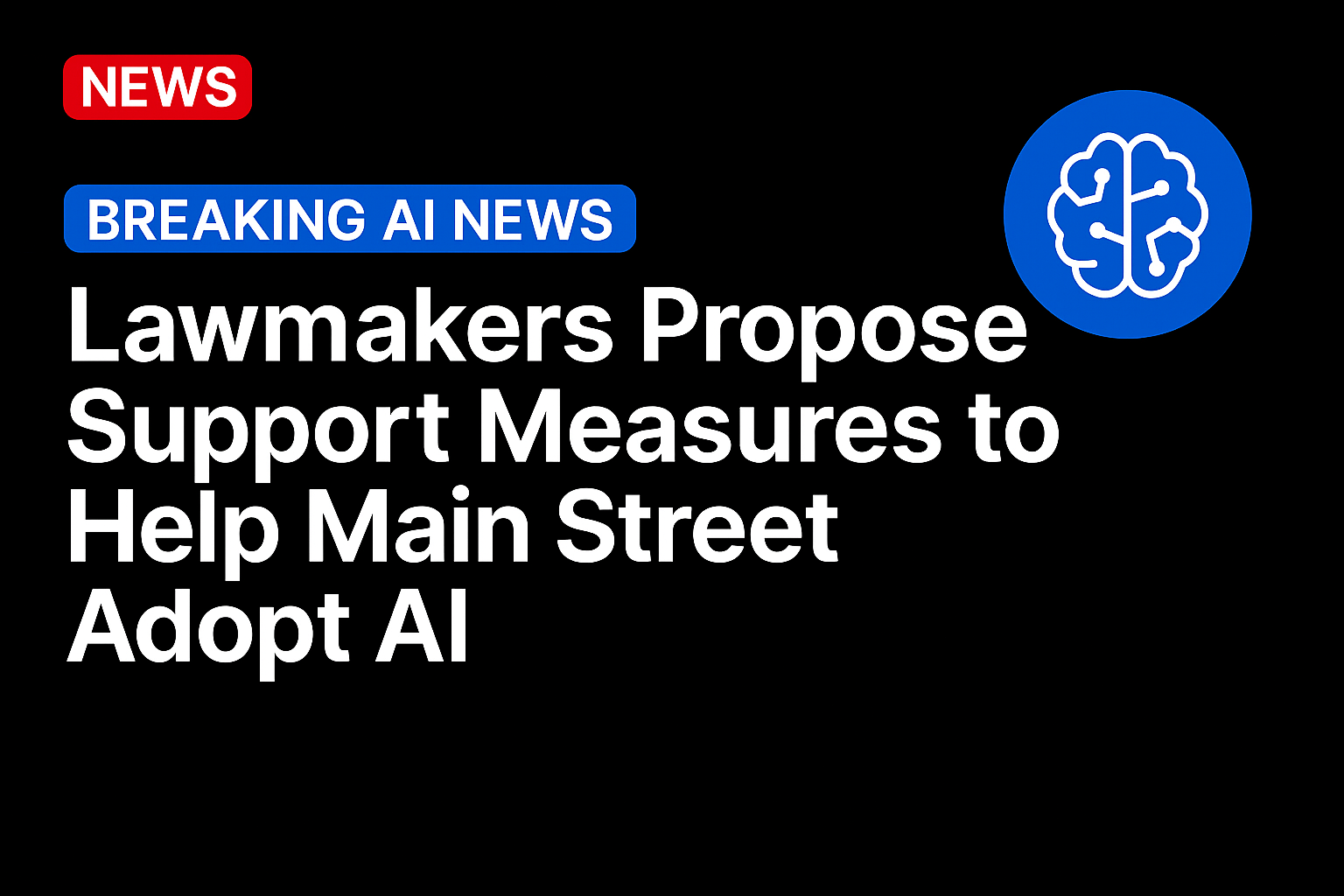
Lawmakers have introduced two bipartisan bills aimed at expanding artificial intelligence support for small businesses, marking one of Congress’s most targeted efforts this year to help Main Street firms understand and responsibly adopt AI.
The proposals focus on training, education and advisory support at a time when many small firms are exploring AI but lack the resources to implement it effectively.
The first measure, the AI for Workforce Innovation, Skills and Entrepreneurship Act, known as AI-WISE, was introduced by U.S. Reps. Hillary Scholten (D-Mich) and Troy Downing (R-Mont.). Sponsors outlined the effort in a press release, saying the goal is to provide small business owners with clear, practical information about how AI systems work and how they can be used to improve operations. While the press release describes broad intentions, the measure itself focuses specifically on expanding the Small Business Administration’s educational mandate for AI.
According to the AI-WISE bill text, the Small Business Administration (SBA) would be directed to develop and maintain publicly accessible educational resources and online modules that help small businesses understand the fundamentals of artificial intelligence systems. The bill outlines topics such as how AI models operate, how to evaluate AI tools, how to identify business functions that may benefit from AI and how to assess benefits, risks and costs. These resources would be published on existing SBA learning platforms.
Scholten said small businesses should “have access to the same innovative tools that larger corporations do,” adding that accessible, responsible guidance is essential as firms consider integrating artificial intelligence. The bill does not create new regulatory requirements but aims to help small businesses approach AI adoption with more confidence and clarity.
A second proposal was introduced by Rep. Mark Alford (R-Mo.) with Scholten. A press release describes how the Small Business Development Center network could play a larger role in helping small firms understand and evaluate AI. The Small Business AI Center bill focuses on expanding SBDC capacity to provide AI-related support, training and outreach.
The bill outlines roles for SBDCs that include offering training workshops, conducting community outreach and providing guidance that helps firms understand the opportunities and challenges related to adopting AI tools. It does not mandate the creation of a new national center but instead empowers the existing SBDC infrastructure to build expertise in AI education. Alford said the aim is to help small firms “increase efficiency, improve operations and elevate their competitiveness in the global market.”
Both bills are currently under review in U.S. House Small Business Committee.
SMBs Face Distinct AI Barriers
The bills align with PYMNTS coverage that small businesses are increasingly aware of AI’s potential, but often face substantial barriers when deciding how to adopt it. PYMNTS also identifies limited technical staff, tight budgets and uncertainty about how to evaluate vendors as key friction points. Many business owners interviewed in the report said they lack the resources to compare different artificial intelligence offerings, assess reliability or understand which use cases align with their operations.
As PYMNTS coverage shows, small businesses often adopt artificial intelligence in targeted, practical ways, beginning with functions such as customer inquiries, scheduling or inventory workflows. Owners see better results when guidance connects AI tools to specific operational needs rather than broad, abstract concepts. Both measures seek to close those gaps by expanding training and support that help small firms evaluate and use AI more effectively.
Source: https://www.pymnts.com/

